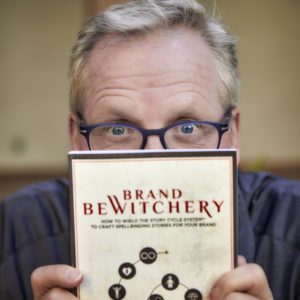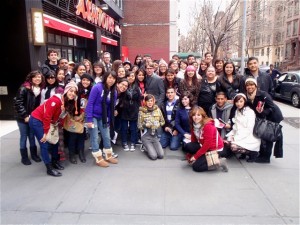(The following article appeared today on the Sustainable Brands website.)

Image courtesy of WorldwidePerformers.com
If all the world’s a stage, according to Bill Shakespeare, then one needs to look no further than the c-suite for some of its highest drama. A new, fairly misunderstood protagonist has entered this mercurial world where survival typically goes to the fittest Machiavellian mind.
The success of our hero, the chief sustainability officer (CSO), relies on an immense and nimble curiosity, and they must possess a cadre of skills to capture the attention of their colleagues and become a true leader, according to the new GreenBiz State of the Profession 2013 report.
“A great CSO or VP of Sustainability is someone who can think like a combination of a CMO, a CFO, an early-stage entrepreneur, a politician, and a top strategy consultant, and very specifically understand and apply that to the culture of the firm at hand,” the report states.
I would add storytelling to the critical talents a CSO must have to insure the survival of themselves and the organization.
In my quest for greater understanding of the power of story, I recently attended a four-day screenwriting seminar conducted by the legendary Robert McKee, whose students have won 59 Academy Awards. I was curious how sustainability officers could use the proven story structure techniques of Hollywood to help advance their corporate social responsibility initiatives.
“Story is the mirror to life,” McKee said. This concept relative to the CSO’s need for storytelling was best reflected to me when McKee discussed the two opposing forces of “Being” and “Becoming,” that are fundamental to all human behavior. “Being” is our internal motivation of our bodies striving for stasis, because change threatens survival.
According to McKee, “Protagonists will do as little as is necessary to gain the greatest benefit. It is basic human nature.” Does that sound like a boardroom to you?
However, in direct opposition to “Being” is the concept of “Becoming” in our external worlds. Everything from an organism to an organization must constantly evolve in reaction to environmental forces. Evolution means survival. We have to overcome our inner conservative selves to assure the survival of the entire entity.
The CSO, like no other c-level executive, is at the epicenter of this fundamental human contradiction for survival.
Here are three McKee quotes from his Story Seminar that I think all CSOs could use to advance their vision:
1. “People think that facts are the truth. Facts are neutral. They have no meaning. It’s what happened and why that’s the truth.”
PowerPoints are typically littered with numbers, graphs and bulleted items. People mistake facts and figures as compelling data when they are actually just the outcomes of human behavior. Wrap these facts in a story and the mind will make sense of them at the most human and compelling level.
A great example is found in the book, Switch: How To Change Things When Change Is Hard. The Heath brothers tell of a manager who wanted to streamline purchasing by highlighting an internal process that procured 424 different kinds of work gloves used in their factories at costs that ranged from $5 to $17 depending on the supplier. He knew that no PowerPoint could make the point as impactfully as piling a mountain of work gloves, each with its individual cost attached, on the boardroom table for all to see. The visceral reaction to his story was immediate and changes to purchasing were instantly triggered.
2. “Storytellers are in the epiphany business. We put together what life can’t connect.”
One of the significant points made in the GreenBiz study is about how sustainability still lacks meaning with CEOs, colleagues, vendors and customers. The mission of the CSO as storyteller is to attach real value created through sustainability practices and make it tangible for their audiences.
Clinica Adelante is a 30-year-old community clinic that needed to rebrand its growing organization while not diminishing its legacy of providing healthcare for all. They transformed into Adelante Sustainable Healthcare and created a market leadership position with three sustainability pillars: Sustaining the availability of healthcare for all; creating more sustainable and eco-friendly operations; and advocating for a healthier lifestyle choices to sustain families, communities and the planet. Adelante connects its patients, employees and community partners to its vision of sustainability, which provides tangible meaning to its mission of being the leader in sustainable healthcare.
3. “The friction of story is when our subjective expectations rub up against the nasty objective reaction we call reality.”
This quote came to mind the other day when I was presenting storytelling to MBA students in the School of Sustainability at Arizona State University. I cautioned them against being politically correct and using euphemisms in their work; both actions tend to disconnect us from reality. As McKee would say, “Life is not a journey. It’s a war!”
The marrow of all compelling stories is conflict. We struggle through our lives and careers, so when we hear about it in story our minds can’t help but engage. At the heart of most sustainability initiatives is this same chaos that often gets worse before it gets better. Do not tippy toe around the truth. Share what you and your organization are up against in all of its nastiness and how you can captain the ship through the storm. That’s powerful storytelling because it’s truthful.
Although McKee shared his views on everything from philosophy to politics to religion to sex through the lens of a screenwriter, he shared only a glimpse of his rather sardonic view on the environment.
“Life is about plastic. Mother nature wanted plastic, but she couldn’t do it herself. So she invented us. Now that she has plastic and Styrofoam decorating her hair, she is systematically eliminating us,” McKee theorized.
Naturally, it’s the behavior-changing power of storytelling that maybe our only hope.
The end.












at 8:35 am
[…] McKee is now turning his attention to helping business leaders become powerful storytellers. I find that his insights are easily adapted to business stories so that c-level managers can become leaders by owning their audiences, from the CEOs and stakeholders in the boardroom, to the staff and employees in the break room, to the consumer in the living room. Another great example of how McKee’s wisdom fits business in found in an article I wrote for Sustainable Brands, What Every Chief Sustainable Officer can Learn from Screenwriting. […]